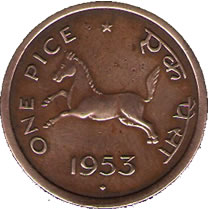
With a title like that, you might be expecting a post about animals, but in fact it’s about slang terms for money – a gorilla is £1,000, a monkey is £500 and a pony is £25.
These names apparently come from old Indian banknotes and coins: the 25 Rupee coin had a pony on it, and the 500 Rupee note had a monkey on it, and British soldiers returning from India brought back such notes and slang terms with the to the UK. A gorilla possibly got its name because it’s two monkeys.
General slang terms for money in the UK include:
– cash – from Middle French caisse (money box), from Old Provençal caissa, from Old Italian cassa, from Latin capsa (box, case), from capio (I take, seize, receive), from Proto-Indo-European *keh₂p- (to grasp)
– bread – from the rhyming slang bread & honey (money)
– dough – an extension from bread
– dosh – possibly a combination of dough and cash
– readies – from ‘ready money’
– spondulicks – unknown origin
– (filthy) lucre – from Latin lucrum (profit)
– moola(h) – possibly from the Romani mol (have value, be worth), or the French moulin (mill)
– wonga – from Romani wangar (coal), from Sanskrit अङ्गार (áṅgāra, charcoal, coal), from Proto-Indo-Iranian *Hangāra-, from Proto-Indo-European *h₁ongʷl-.
Do you use any of these, or other slang words for money, and/or for specific amounts of money?
More on money slang:
https://en.wikipedia.org/wiki/Slang_terms_for_money
http://www.aldertons.com/money.htm
https://en.wiktionary.org/wiki/Wikisaurus:money
Russian has some interesting slang for sums of money: A million is called “limon”, which means “lemon” but sounds similar to “million”. A thousand is called “shtuka”, which roughly means “one item”. I’ve no idea why.
I use fiver, tenner, ton and grand